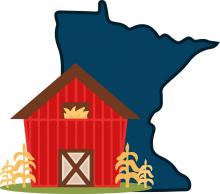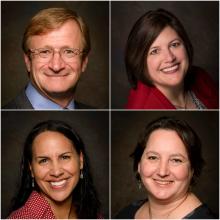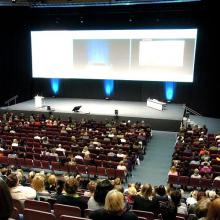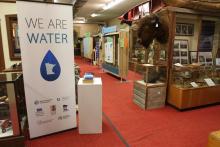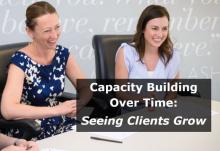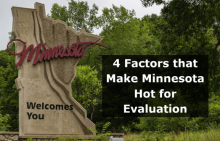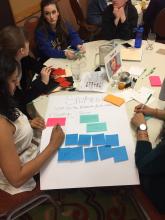Training from the Minnesota Council of Nonprofits (MCN) is about to get a lot more interactive with the addition of an e-Learning Studio. We appreciate our partnership with MCN, which goes back more than a decade, and stems from our shared value of building the capacity of people and organizations in the nonprofit sector. As a longtime partner of MCN, we cannot wait to see the new opportunities this addition will bring to light.
Sowing the Seeds of Success
Thoughtful planning process yields better results for a new program at the MDA
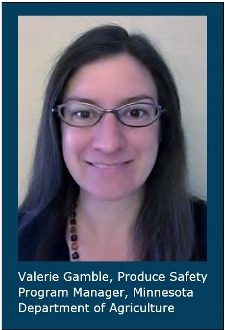 Last spring, the Minnesota Department of Agriculture (MDA) partnered with The Improve Group (IG) on a strategic planning process to implement a
Last spring, the Minnesota Department of Agriculture (MDA) partnered with The Improve Group (IG) on a strategic planning process to implement a
Evaluation Firm Hires, Promotes Key Staff
The Improve Group (IG) is pleased to announce several key changes to the company’s top leadership. The new structure will allow IG to continue providing excellent client service while building a solid infrastructure to carry out our strategic goals: Expand our tools and services to meet community needs; lead with a joyful and powerful team; and use our practice to promote positive social change.
Although summer has reached the halfway mark, we can’t let it go by without reflecting on the experiences of our recent interns—Audrey McIntyre and Michael Prideaux.
Our interns over the 2016-17 academic year, Audrey and Michael, worked on team projects for the Angel Foundation, the Highland Friendship Club, the Minnesota Department of Agriculture, and our work with Minnesota’s Alcohol, Tobacco, and Other Drugs (ATOD) grantees.
Both Audrey and Michael said that interaction with clients and involvement in project work were highlights of their internships.
IG shares evaluation tips and tools with evaluators and non-evaluators alike!
It’s almost that time of year again—fall conference season—and The Improve Group is preparing for a flurry of presentations and trainings. Building people’s evaluation skills aligns with our commitment to capacity building. We value this work because of the importance of equipping communities and organizations to navigate complexity so that they can make a sustained impact.
Water touches all aspects of life in our state, including health, industry, and recreation. Even the name Minnesota—from a Dakota word meaning "land where the water reflects the sky”—demonstrates the importance of water in our lives. It is this deep connection that inspired an unlikely partnership of state agencies and six local communities to create We Are Water MN, a traveling exhibition that celebrates Minnesota’s love affair with water and engages residents in caring for this precious resource.
One important aspect of our work that I am constantly reminded of is how creating space for clients to contribute their specialized knowledge leads to innovation and great ideas in evaluation projects.
Here at The Improve Group, we have had the pleasure of developing relationships with certain clients, including some we’ve watched grow through our capacity-building partnerships. We value this type of work because of the importance we see in equipping communities and organizations to navigate complexity and have sustained impact. One client we have done extensive capacity building with is VocalEssence, a Minneapolis-based choral music organization.
You may have heard the saying “What gets measured, gets done.” In Minnesota, nearly every program, initiative, or collaborative effort has an evaluation component. With the practical application of so many different evaluations, we wondered: What are the conditions that make an environment fertile for evaluation – and evaluators?
Here are 4 factors that make Minnesota a great place to be an evaluator:
1. A vibrant nonprofit and philanthropic economy
We recently facilitated a 2-hour Theory of Change workshop with 30 youth and adult members of the Minnesota Youth Council, an initiative of Minnesota Alliance with Youth that empowers youth to exercise their voices, opinions and ideas to take action on youth issues across the state. The purpose was to gather their input as to which issues concern Minnesota Youth Council, what its strategies are to address them, the expected long-term outcome of their work, and ultimate vision of a better world.


